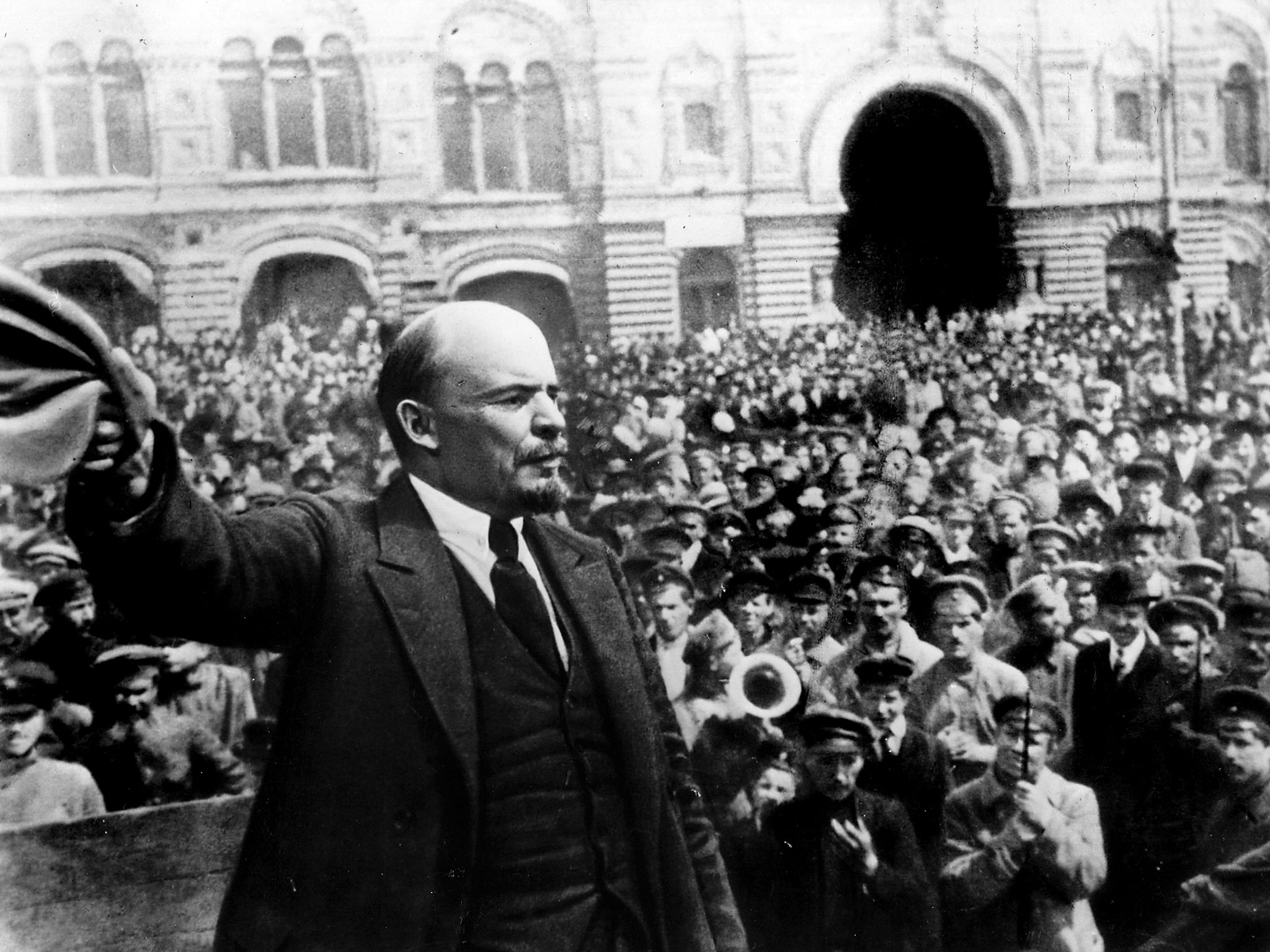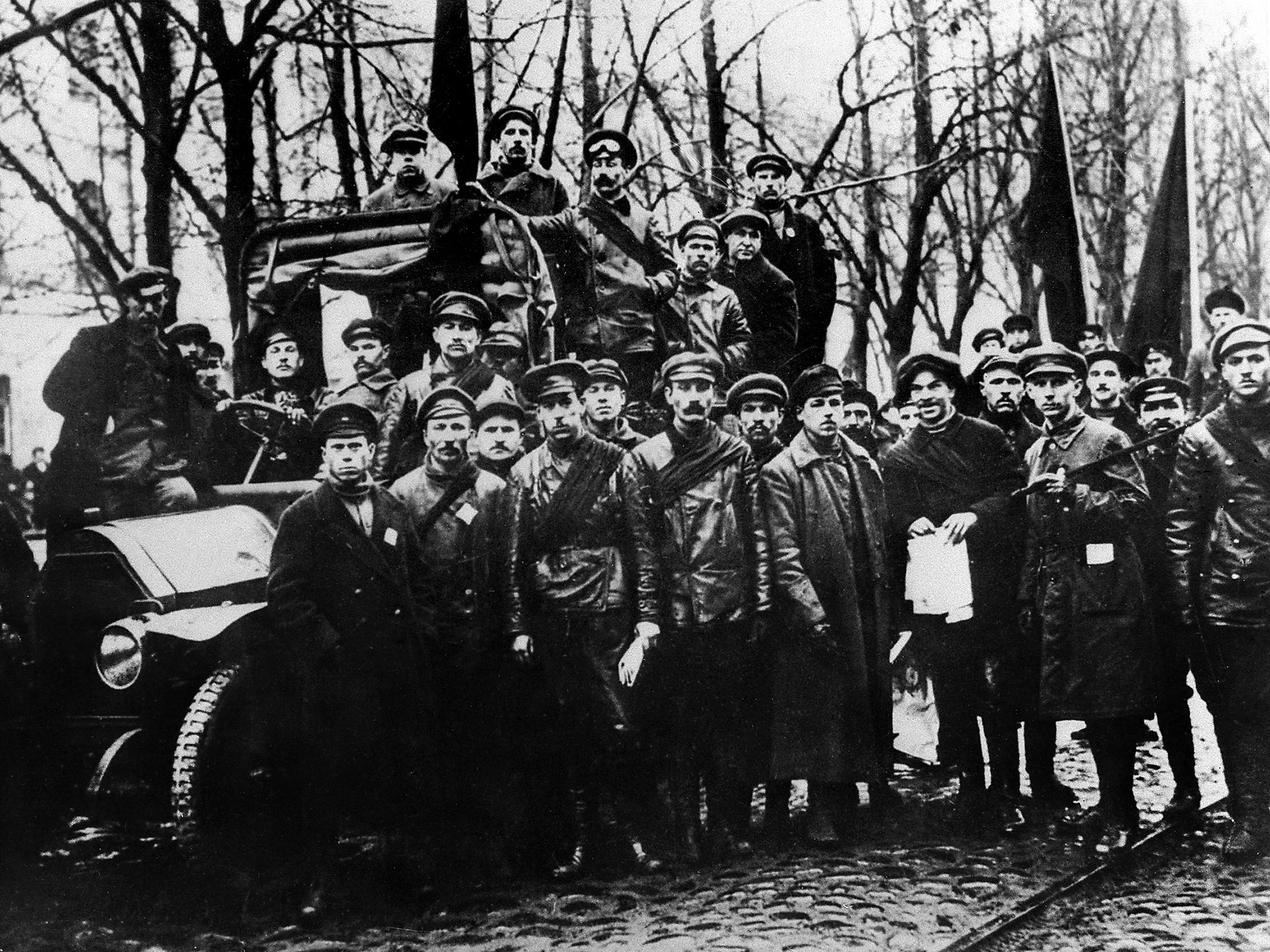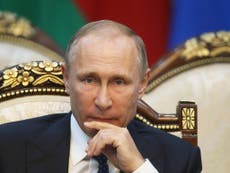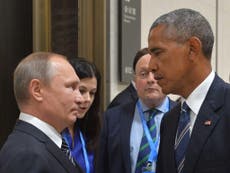Can Putin’s divided Russia be reconciled in remembrance as it marks the centenary of the 1917 revolutions?
Unlike France, Russia remains conflicted about its revolution. Did it improve the lives of ordinary people, or did it prevent the country from evolving into a modern democracy – perhaps permanently? The centenary this year is forcing it to confront this question


Just typing the date as I sit down to write this article – 2017 – feels like an act darkened with shadows and loud with echoes. The centenary of the February Revolution (whose start is dated to 23 February in the old Julian calendar, and 8 March in the Gregorian calendar commonly used today) opens Russia’s year of revolution, with landmark anniversaries, now falling one after the other until the end of the year and beyond.
The February tumult, which brought the abdication of Tsar Nicholas II – a dynasty and an empire signed away with almost as little drama as was to attend Mikhail Gorbachev’s resignation and the dissolution of the Soviet Union 74 years later – was known to every Soviet schoolchild as the “bourgeois” revolution. It was treated, in the great communist scheme of things, as little more than the warm-up act for the “Great October Revolution”, when the Bolsheviks, under Lenin, seized power.
This is one reason why the February anniversary is less contentious in today’s Russia than that of the October Revolution, which presents not only President Vladimir Putin and his circle in the Kremlin, but Russian historians and indeed many ordinary Russians with a dilemma.
Indeed, it is not at all clear, with eight months or so to go, whether Russia will hold any official commemoration at all, come that centenary; and if it does, what its tenor will be.
A solution of a kind was found for the pageant staged at the opening ceremony of the Sochi Winter Olympics in 2014. The year of revolution was depicted with a great deal of noise, a flush of red and orange, and a great many guns and banners. For the purposes of that pageant, though, the revolution was only one stage in the great march of Russian history from medieval times to the 21st century. There was no need for historical detail, and no need to take a view upon it.
The centenary is different. It demands that any commemoration be faithful, so far as possible, to history. It also cries out for Russia, and Russians, to take a view.
Yet this is not as simple as it might seem, even at a distance of 100 years, and even with the Soviet Union itself consigned to history.
It was in fact easier to pass a judgement at the end of 1991, when the demise of both Communist rule and the Soviet Union was widely seen as “undoing” the Bolshevik revolution. Some of Soviet communism’s arch foes, including the philosopher-writer Alexander Solzhenitsyn, returned from exile. Preparations were made for the Moscow Patriarchate and the Russian Orthodox Church in emigration to be reunited. The last Tsar and his family were reburied. There was even talk of the monarchy being restored. The previous 70-plus years could be seen as a tragic mistake.
Now, however, it is more complicated. Russia is not like France, which still tends the revolutionary flame more than two centuries on. But nor is it like England, where the revolution failed and the monarchy was restored.
The Soviet system that resulted from the revolution lasted too long to be expunged from history – at least so long as the USSR remains within living memory – but not long enough to determine Russia’s worldview to this day.

A quarter century after the Soviet collapse, the legacy of the Bolshevik Revolution is deeply polarising, in a way it could not be in Soviet times. There are Russians who denounce Bolshevism and all its works and hail the collapse of Soviet communism as a merciful deliverance. They may have family who chose exile after 1917; they may have lost relatives in the Stalin purges, or seen off fathers, husbands and brothers to the front in 1941-5 who never came back. For many others though, the revolution, while violent and cruel to many, gave their families opportunities they would never have had so long as the Tsar ruled.
Many are reluctant to speak ill of Stalin, regarding him as Lenin’s heir and a great leader in war. Many others are deeply ambivalent, recognising that while the Bolshevik Revolution brought benefits, including education, to those at the bottom of the social pile, it also destroyed not just the aristocracy, but the first flowering of a middle class – “the best of us”, as some still say.
These conflicting views are the tiger that Putin has had to ride through all his years in power.
He has avoided being thrown, in part by insisting that the history taught in Russian schools should be as inclusive of Lenin, Stalin and Trotsky as of Andrei Sakharov and Solzhenitsyn. His approach has entailed some steps back, including the revival of the Soviet-era national anthem (same tune, new words). That Lenin remains in his mausoleum on Red Square also testifies to the difficulty – as yet – of rewriting the Bolshevik legacy.
There is also a more recent reason for Russia’s ambivalence towards this centennial year of revolution, which is to be found in the so-called “colour” revolutions around its borders: the 2005 Orange Revolution and the 2014 Euro-Maidan in Ukraine, and the 2003 Rose Revolution in Georgia, as well as in the Arab Spring. Whether or not Russians believe that these uprisings were orchestrated by the West, they fear that their country could be next. Some of the very same people who revere the Bolshevik Revolution find the prospect of a new revolution deeply subversive.
Compared with the controversies now swirling around the October (Bolshevik) Revolution, the February “bourgeois” Revolution draws fewer passions. Its failure, however, which ultimately enabled the Bolsheviks to seize power, raises questions that were debated at the time and are being debated again today.
The central one is this: in other circumstances (without, say, the exigencies of the First World War or the 1911 assassination of reformist Prime Minister Pyotr Stolypin) would Russia have been able to modernise and democratise at the same time? Could it have become a modern country like any other, or was the failure of the provisional government and Russia’s first democratically elected Constituent Assembly proof, perhaps, that Russia and democracy were incompatible, and maybe remain so?
One Russian response to the collapse of the Soviet Union was a new interest in the decade immediately before 1917, and a popular approach was to ask whether Russia could not rewind and simply pick up where its development was so brutally broken off.
An anthem to that thesis was a film, Stanislav Govorukhin’s The Past We Have Lost, which offered an elegiac portrait of those pre-revolutionary years. Since then, though, much of the romance has worn off. It is unrealistic to expect that 2017 will reconcile Russians to a legacy of revolutions that continues to divide.




Join our commenting forum
Join thought-provoking conversations, follow other Independent readers and see their replies